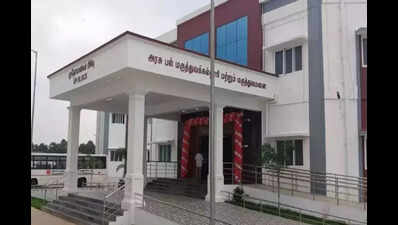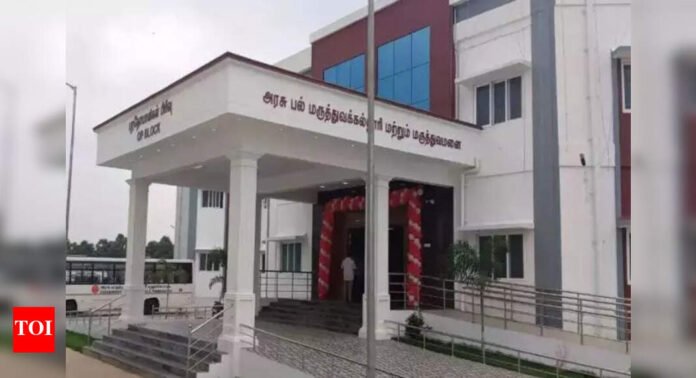Tamil Nadu Dental Council Probes Patient Deaths

Council Starts Investigation After Lancet Report
Chennai: The Tamil Nadu Dental Council has launched an investigation. This follows a report in The Lancet. The report linked eight patient deaths in 2023 to a bacterial brain infection. Patients contracted the infection, called neuromyeloidosis, at a dentist’s clinic in Tirupattur district.
Dentist Responds to Allegations
The dentist, Dr. S Arivarasan, has addressed the claims. He stated that the samples in the report may not indicate “negligence” or “unhygienic” practices. He also noted that he is not banned from opening new clinics or practicing dentistry.
Council’s Official Statement
Dr. J Baby John, a state dental council member, discussed the incident. He said, “We haven’t received any complaints from patients or government agencies. We learned about this from a news report. We will initiate an inquiry based on the report.”
Key Findings from the Investigation
Doctors from CMC Vellore, ICMR-NIE, and Tamil Nadu’s public health directorate conducted an investigation. Their findings, published in a medical journal, revealed some alarming details:
- An unsterile surgical instrument was used to open a saline bottle.
- The bottle was loosely sealed and reused for at least 10 people.
- All these individuals contracted the infection.
The authors suggested that the 80% fatality rate in 2023 might be due to the bacteria traveling directly along nerve pathways. This could have occurred when the saline was used to clean patients’ mouths during procedures.
Dentist Continues Practice
Dr. Arivarasan practiced at VTS Dental Clinic until December 2024. He has since moved to Arivu Dental Clinic and continues to practice dentistry. He told reporters, “The VTS clinic was closed for two months in 2023 after a patient’s relative made an allegation. Samples from my clinic were taken during this period. I was not informed that it was for scientific research, nor were the results shared with me.”
He further added, “I reopened the clinic two months later after the joint director of public health gave me a clean chit. The only feedback I received was to use a disposable saline bottle, which I now do. There is no ban on me practicing.”
Responses from Officials
Dr. V Gnana Meenakshi, Tirupattur’s joint director of public health, submitted a detailed report to the collector but refused to disclose further details. Tirupattur collector K Sivasoundaravalli did not respond to calls or messages. Officials in the state DMS, responsible for registering clinics, are still gathering details from the district.
The Indian Dental Association has requested further investigations from the council. They noted that researchers drew samples from a clinic that was closed for over two months. Scientists found the bacterium Burkholderia pseudomallei in saline samples. However, they stated, “It’s not unusual, but we don’t know when it was contaminated. There is nothing to prove that this led to the deaths.”
Outbreak Successfully Contained
Vellore: Christian Medical College reported that government health authorities have contained the neuromeliodosis outbreak. There have been only 10 cases in the state. The CMC press release commended Tamil Nadu’s robust public health system. It highlighted collaborative efforts with scientific teams at NIE, Chennai, and CMC Vellore.
The release stated, “There were 21 cases identified through active and passive case searches. Of these, 11 were due to exposure to surface water and agricultural activities, and 10 had undergone dental procedures. The dental clinic in Tirupattur was investigated to identify the source of contamination. The bacteria were isolated from an in-use saline bottle.”
It further added, “The outbreak was controlled with 10 cases immediately after recognition, and no further fatalities were reported. In cases without any history of dental procedures, increased exposure to soil or water in agricultural fields might have led to the development of the disease.”



